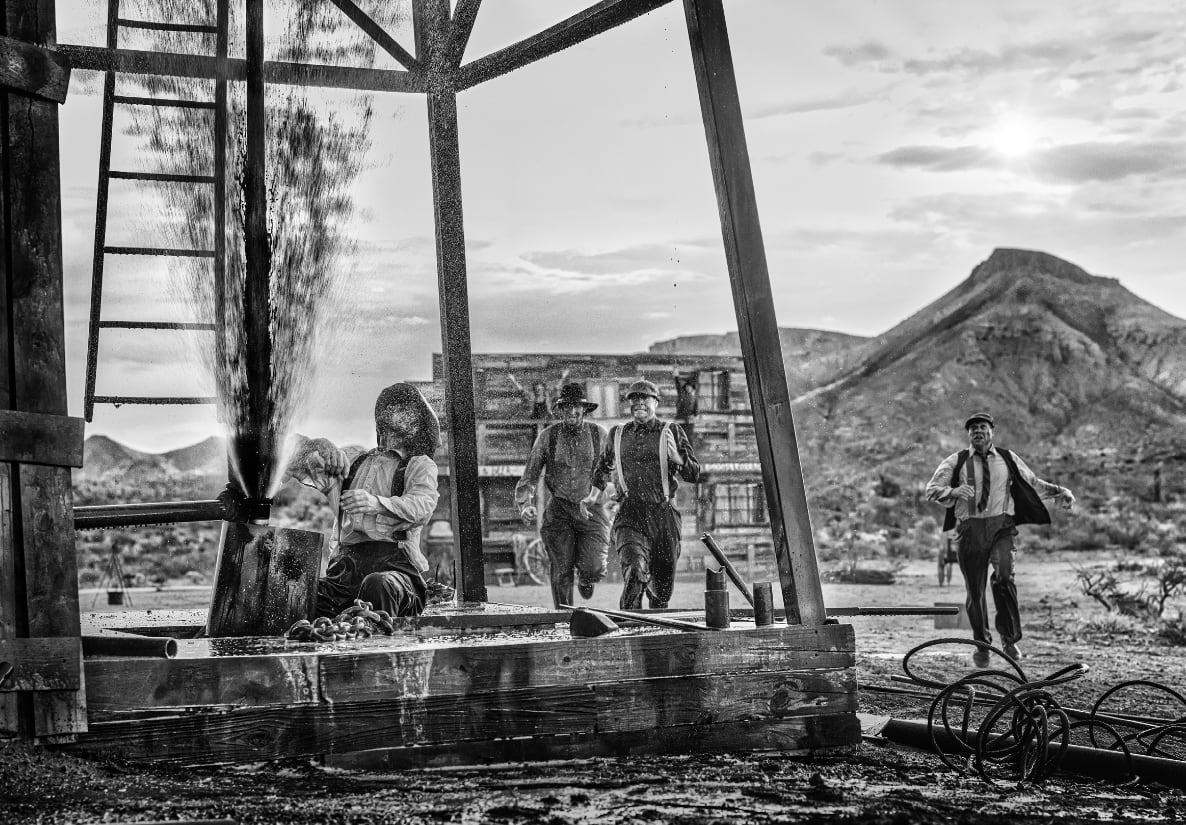David Yarrow
1905
Archival Pigment Print
Large (framed): 71x96
Standard (framed): 52x68
Ed of 12
Standard (framed): 52x68
Ed of 12
In our research for the oil set we were building in West Texas, we tried to find prompts from old monochrome pictures of early oil derricks. This type of computer...
In our research for the oil set we were building in West Texas, we tried to find prompts from old monochrome pictures of early oil derricks. This type of computer work appeals to me, whether wearing the hat of an amateur historian or indeed a photographer. Historical black and white images from the Wild West of 120 years ago or more have long had a pull on my visual sensibilities and I am proud to own two original Edward Curtis portraits. Cameras 120 year ago were operationally limited at every level, and no more so than when trying to freeze action. It dawned on me that if we were to build a set based on our understanding of wildcatting in the early years of the 20th century, we could then use that set to take the actions shots that were simply impossible to capture in the era to which we were playing homage. My leaning was to be as immersive as possible and have action across the frame. I just hadn’t seen this concept played out in a still image and that encouraged me. Of course, we took hints from Paul Anderson’s Oscar winning movie There will be Blood and in particular the scene when oil was struck for the first time. My sense was that there would be a degree of panic in the crew amidst all the excitement and that panic must be conveyed. The irony with this photograph, is that despite everything that is going on, and our current anxieties about drilling for oil, there is beauty and romance. The story is a good story and that will always be so. Without oil, where would we be now?
